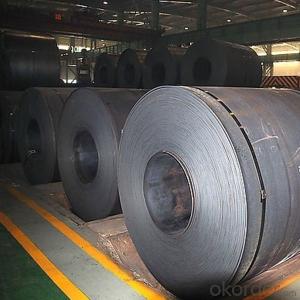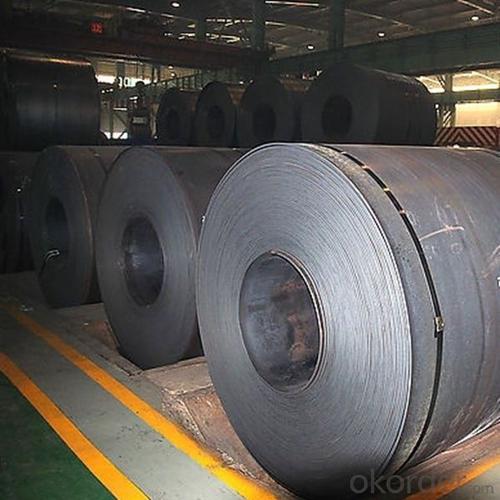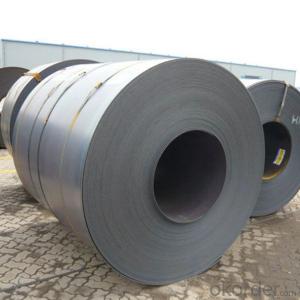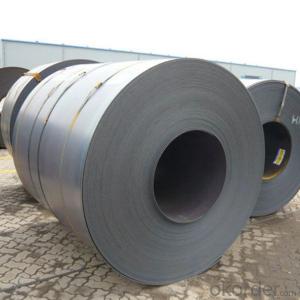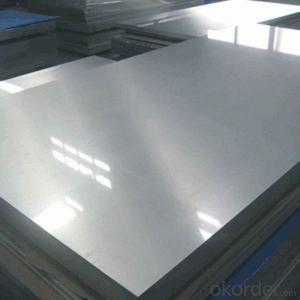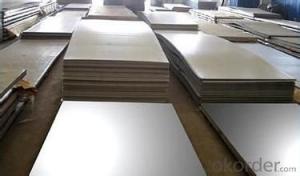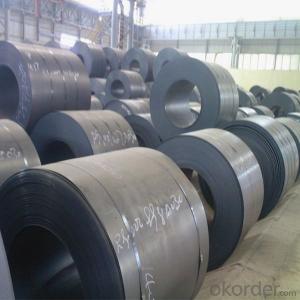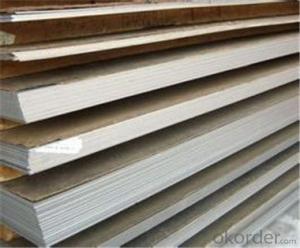Steel Coils Steel Plates Steel Sheets Q235 Made in China
- Loading Port:
- Tianjin
- Payment Terms:
- TT OR LC
- Min Order Qty:
- 30 m.t.
- Supply Capability:
- 500 m.t./month
OKorder Service Pledge
OKorder Financial Service
You Might Also Like
Specification
DESCRIPTION FOR SS400 CARBON STEEL SHEET
1.Thickness: 1-200mm
2.Width: 100-3000mm
3.Length: 1000-12000mm
4. Applications :mining machinery, environmental protection, engineering
5. Grade:SS400 A 36 Q195.Q235.Q345.SPCC.SPCH
6.Surface : Hot Rolled Cold Rolled Galvanized Steel
DESCRIPTION:
GRADE: SS400, ASTM A36, A572, ST37,ST52, Q195, Q215, Q235,Q345, S235JR etc.
STANDARD: GB/T709-2006, ASTM A36, JIS G3101, DIN EN 10025, SAE 1045, ASTM A570
SPEC:
1)Width: 600-2500mm or 1000,1050,1250,1500,1800,2000mm
2)Thickness:1.5mm-200mm or as customers’ special requirements;
3)Length: 2-12m or as customers’ special requirements
PACKING:
1.Big thickness:by bulk vessel
2.Small thickness:packed by steel strips and shipped by container
3.According to the requirements of customers'
TRADE TERMS :FOB, CFR, CIF
DETAILED PICTURES FOR STEEL COILS
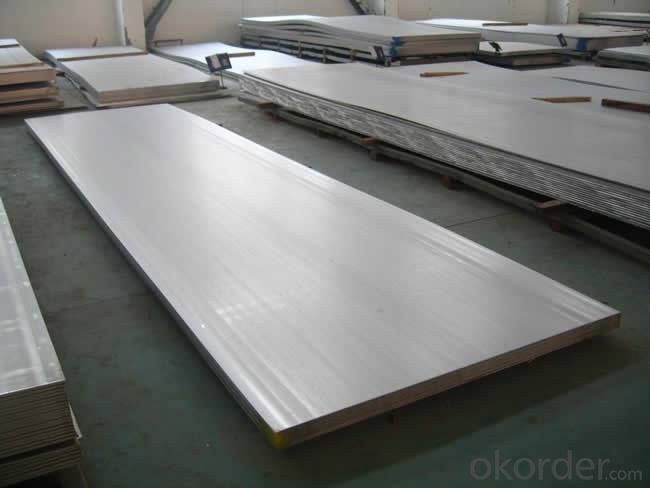
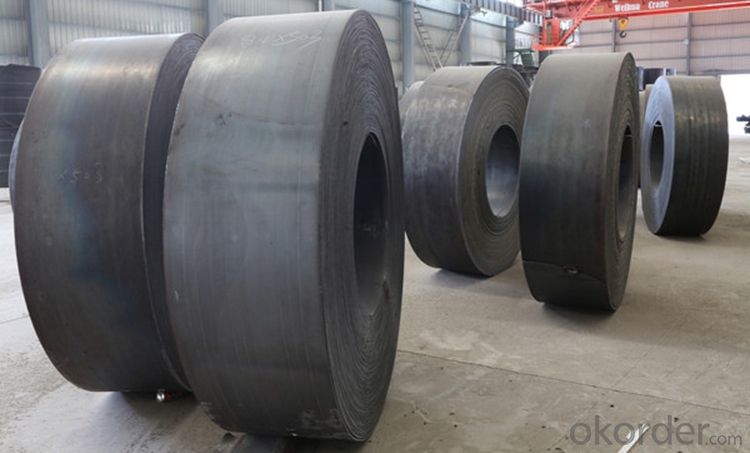
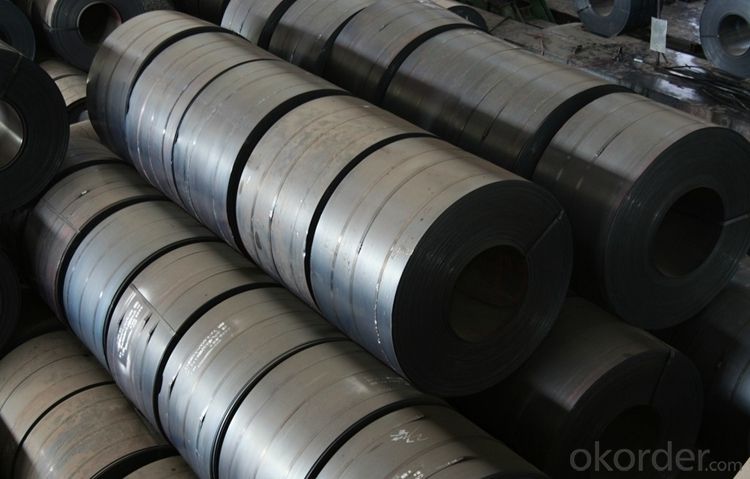
FAQ
Q: How long is the delivery time?
A: Normally 30-40 days, but mostly according to the specific requirements or the quantity
Q: Could you send me sample?
A: We can supply you with the sample for free, but the delivery charges will be covered by customers.
FAQ
Q: How can I get the samples?
A: If you need some samples to test ,please pay for the transportation freight of samples and our samples are free for you.
Q: How can I get your price list?
A: Please send us your email or fax and order information – Quantity, Specification (steel type, thickness, width, surface finish), then I can send you the price list.
FEATURES OF STEEL COILS
(1)Good ductility
(2)Good corrosion resistance
(3)Excellent abrasion resistance and fatigue strength
(4)Good weldability
(5)Oxidation resistant performance
(6)Excellent in high temperature
- Q: What is the typical composition of stainless steel sheets?
- The primary constituents of stainless steel sheets are iron, chromium, and nickel, which are responsible for its distinct properties. The proportions of these three elements can vary depending on the specific grade of stainless steel being utilized. On average, stainless steel sheets typically contain approximately 10-30% chromium and 8-20% nickel. Moreover, small quantities of other elements like carbon, manganese, and molybdenum may be present to further augment the strength, corrosion resistance, and other desired characteristics of the stainless steel. The composition of stainless steel sheets is meticulously balanced to attain the desired amalgamation of durability, strength, and resistance to corrosion, which makes it a highly favored choice across industries such as construction, automotive, and manufacturing.
- Q: Are steel sheets suitable for railway infrastructure?
- Yes, steel sheets are suitable for railway infrastructure due to their high strength, durability, and resistance to wear and tear. Steel sheets are often used for railway track components such as rails, sleepers, and bridges, as they can withstand heavy loads and provide stability to the railway system. Additionally, steel sheets can be easily fabricated and maintained, making them an ideal choice for railway construction projects.
- Q: Are steel sheets resistant to impact or damage?
- Steel sheets possess remarkable strength and durability, attributes that render them exceptionally resistant to impact and damage. Their robust tensile strength enables them to endure substantial loads and withstand external forces without deformation or breakage. Thus, they find extensive use in critical applications that demand impact resistance, such as construction, automotive manufacturing, and industrial settings. Furthermore, steel sheets exhibit exceptional resilience against extreme temperatures, corrosion, and environmental factors, further enhancing their overall resistance to damage. However, it is worth noting that the degree of impact or damage resistance may vary depending on the thickness, quality, and composition of the steel sheet.
- Q: Can steel sheets be used for playground equipment?
- Yes, steel sheets can be used for playground equipment. Steel is a highly durable and strong material that can withstand heavy use and harsh weather conditions, making it suitable for playground structures such as climbing frames, slides, and swings. Additionally, steel sheets can be shaped and formed into various designs, offering flexibility in creating engaging and safe play structures for children.
- Q: Are the steel sheets suitable for agricultural applications?
- Yes, steel sheets are suitable for agricultural applications due to their durability, strength, and resistance to rust, making them ideal for construction of farm buildings, equipment, and fencing.
- Q: What industries commonly use steel sheets?
- Some of the industries that commonly use steel sheets include construction, automotive, manufacturing, aerospace, and energy sectors.
- Q: Can steel sheets be used for elevator interiors?
- Yes, steel sheets can be used for elevator interiors. Steel is a durable and versatile material that can withstand high levels of traffic and wear. It can be easily customized, painted, or textured to create an aesthetically pleasing interior design for elevators. Additionally, steel sheets offer excellent resistance to fire and moisture, making them a suitable choice for elevator interiors.
- Q: What's the difference between single rolling steel sheet and continuous rolling steel plate?
- Single rolled steel plate usually refers to medium plate, in the process of rolling and finishing, the plate has been flat, usually thicker (6mm or more), the width of the fastest up to 4800mm.
- Q: What are the common thicknesses for roofing steel sheets?
- The common thicknesses for roofing steel sheets range from 22 gauge (0.0299 inches) to 29 gauge (0.0149 inches), with 26 gauge (0.0187 inches) being the most commonly used thickness in the industry.
- Q: What is the tensile strength of a steel sheet?
- The tensile strength of a steel sheet can vary depending on the specific grade and thickness of the steel. However, generally, steel sheets have a tensile strength ranging from 300 to 580 megapascals (MPa).
Send your message to us
Steel Coils Steel Plates Steel Sheets Q235 Made in China
- Loading Port:
- Tianjin
- Payment Terms:
- TT OR LC
- Min Order Qty:
- 30 m.t.
- Supply Capability:
- 500 m.t./month
OKorder Service Pledge
OKorder Financial Service
Similar products
Hot products
Hot Searches
Related keywords
